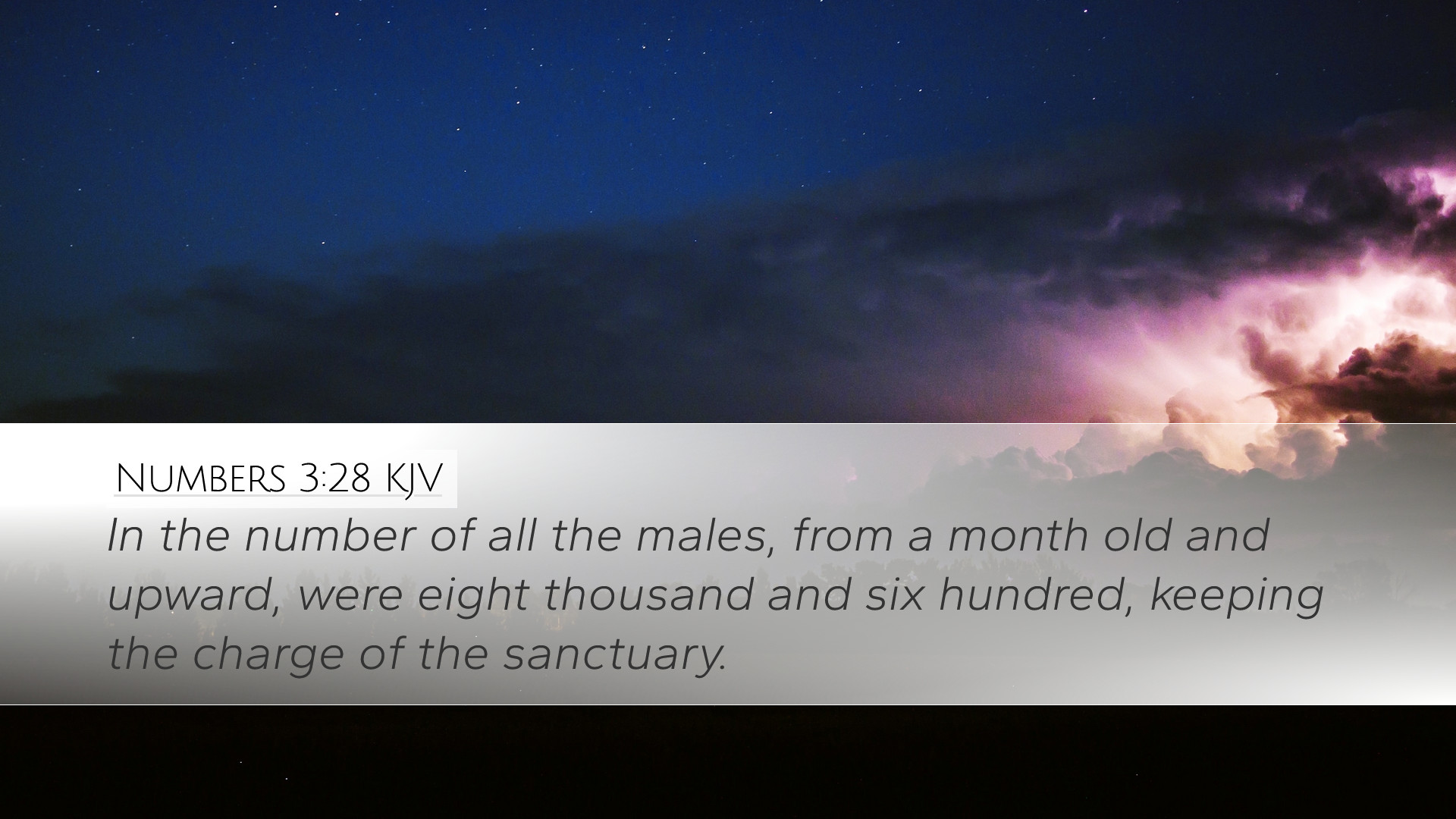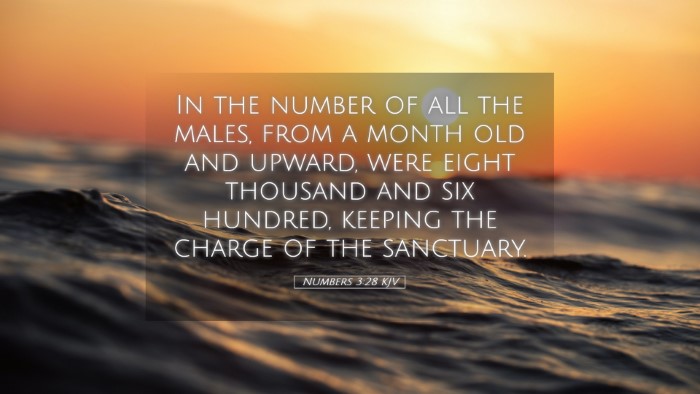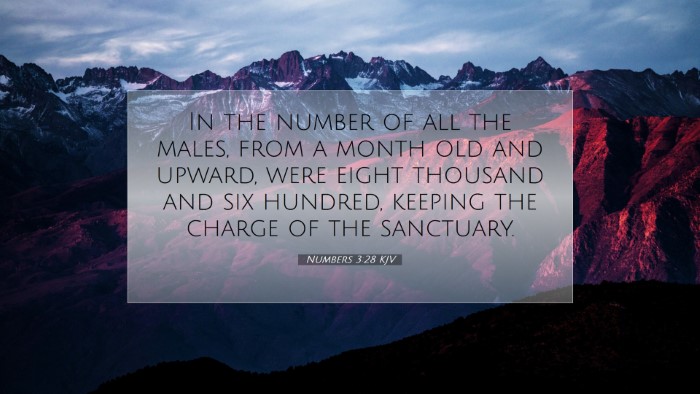Commentary on Numbers 3:28
Numbers 3:28 states: "In the families of the sons of Kohath, there were two thousand seven hundred and fifty." This verse provides insights into the tribal structure and specific roles assigned to the Levite families within Israel's sacred duties. Below, we explore various aspects derived from public domain commentaries by Matthew Henry, Albert Barnes, and Adam Clarke.
Contextual Overview
This verse appears in the setting of Israel's wilderness journey, where the Levite tribe is set apart for religious duties, particularly concerning the tabernacle. The Levites were chosen for their unique role in carrying the ark and other sacred objects, serving prominently in the worship of God.
Kohath and His Descendants
Matthew Henry emphasizes the significance of the Kohathites, who were responsible for the most holy items in the tabernacle. Their duty included the care and transportation of the Ark of the Covenant, the table of showbread, and other sacred vessels, which reflects the high honor and responsibility bestowed upon them.
Albert Barnes notes that the number of 2,750 indicates the Kohathite males from a month old and upwards. This specific counting highlights God’s provision and the orderly nature of the Levite service. The census underscores God's faithfulness to multiply His people, even in the wilderness, a sign of His covenant promise.
Significance of the Number
The detailed enumeration of the Kohathites serves two main purposes:
- First: It illustrates God's precise plan for worship and His expectation of order within Israel's spiritual life.
- Second: The number indicates the Levite tribe’s growth, showcasing God's blessing during their nomadic existence.
The Role of the Levites
The role of the Kohathites, and Levites more broadly, underscores a profound theological principle about separation unto God. Adam Clarke expounds that this separation reflects God's holiness, who desires His people to approach Him in a manner aligned with His character.
Clarke also mentions that the duties were not merely functional but deeply spiritual. The significance placed on the Kohathites’ work draws attention to the seriousness of their tasks, which involve dealing directly with God’s presence, necessitating both reverence and skill.
Theological Implications
This verse invites several theological reflections:
- Holiness and Reverence: The Levites’ separation reminds us of the need for purity in our service to God. The specifics of their roles call modern believers to consider how to approach God with reverence.
- God's Faithfulness: The counting of the Kohathites reiterates God’s faithfulness to numbers His people, revealing His care and providence even in periods of transition and uncertainty.
- Servanthood: The Levites' example encourages all followers of Christ to embrace a servanthood mentality, dedicating their lives to the service of others within the body of Christ.
Practical Application
As leaders, students, and scholars engage with this text, several core applications emerge:
- Leadership in Ministry: Pastors can glean insights about effective leadership and the importance of defining roles within church leadership, drawing parallels from the organizational structure of the Levites.
- Understanding Giftedness: The specific roles for Kohathites can serve as a metaphor for recognizing and utilizing individual spiritual gifts in the contemporary church.
- Covenantal Reminder: The counting of the Israelites forms a reminder of God’s ongoing covenant with His people, encouraging students and theologians to reflect on God's ongoing faithfulness today.
Conclusion
Numbers 3:28 encapsulates a pivotal moment in the narrative of the Israelites, illustrating deeper truths about God's design for worship, the significance of holiness, and the serious nature of God’s call on His chosen servants. The careful attention to roles and numbers speaks to a God who is both infinitely majestic and intimately involved in the lives of His people.


